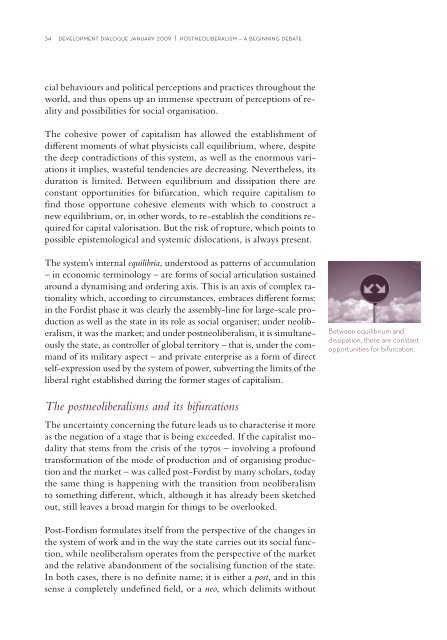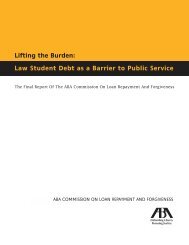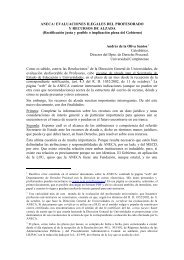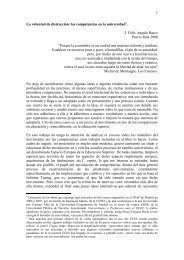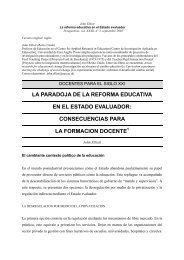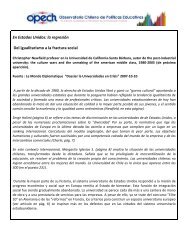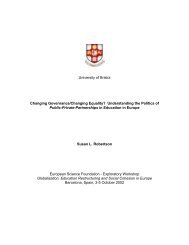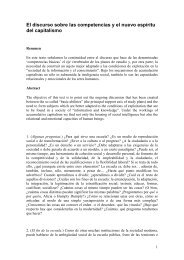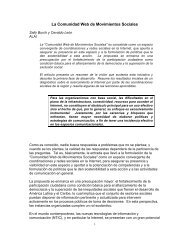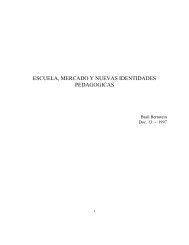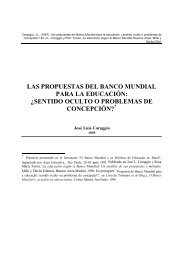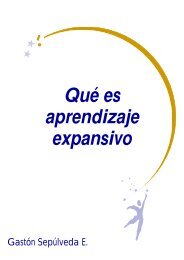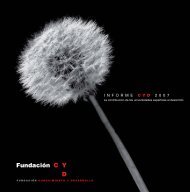no. 51 | january 2009
no. 51 | january 2009
no. 51 | january 2009
- No tags were found...
You also want an ePaper? Increase the reach of your titles
YUMPU automatically turns print PDFs into web optimized ePapers that Google loves.
34 development dialogue <strong>january</strong> <strong>2009</strong> | postneoliberalism – a beginning debatecial behaviours and political perceptions and practices throughout theworld, and thus opens up an immense spectrum of perceptions of realityand possibilities for social organisation.The cohesive power of capitalism has allowed the establishment ofdifferent moments of what physicists call equilibrium, where, despitethe deep contradictions of this system, as well as the e<strong>no</strong>rmous variationsit implies, wasteful tendencies are decreasing. Nevertheless, itsduration is limited. Between equilibrium and dissipation there areconstant opportunities for bifurcation, which require capitalism tofind those opportune cohesive elements with which to construct anew equilibrium, or, in other words, to re-establish the conditions requiredfor capital valorisation. But the risk of rupture, which points topossible epistemological and systemic dislocations, is always present.The system’s internal equilibria, understood as patterns of accumulation– in eco<strong>no</strong>mic termi<strong>no</strong>logy – are forms of social articulation sustainedaround a dynamising and ordering axis. This is an axis of complex rationalitywhich, according to circumstances, embraces different forms:in the Fordist phase it was clearly the assembly-line for large-scale productionas well as the state in its role as social organiser; under neoliberalism,it was the market; and under postneoliberalism, it is simultaneouslythe state, as controller of global territory – that is, under the commandof its military aspect – and private enterprise as a form of directself-expression used by the system of power, subverting the limits of theliberal right established during the former stages of capitalism.Between equilibrium anddissipation, there are constantopportunities for bifurcation.The postneoliberalisms and its bifurcationsThe uncertainty concerning the future leads us to characterise it moreas the negation of a stage that is being exceeded. If the capitalist modalitythat stems from the crisis of the 1970s – involving a profoundtransformation of the mode of production and of organising productionand the market – was called post-Fordist by many scholars, todaythe same thing is happening with the transition from neoliberalismto something different, which, although it has already been sketchedout, still leaves a broad margin for things to be overlooked.Post-Fordism formulates itself from the perspective of the changes inthe system of work and in the way the state carries out its social function,while neoliberalism operates from the perspective of the marketand the relative abandonment of the socialising function of the state.In both cases, there is <strong>no</strong> definite name; it is either a post, and in thissense a completely undefined field, or a neo, which delimits without


